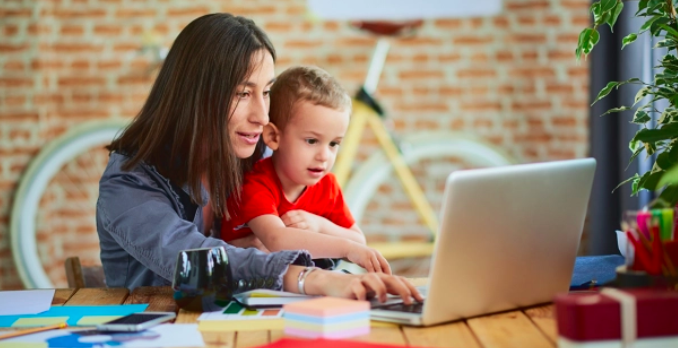
Listen here:
By: Jamie Atherton
School is closed, parents are home, and daily routines are changing by the day. The response to the COVID-19 outbreak is affecting people of all ages. However, young children who may not fully understand what’s happening may just be anxious and confused. No more school, no more play dates, no more playing at the park… what’s happening!?
Donna Koller, professor of early childhood studies has advice for parents who are wondering how much their children should know about the pandemic, and how to protect them. Koller says that it is most important for children to have clear information. Whatever the age of the child, Koller suggests parents take three simple steps to successfully inform their child without any unnecessary alarm.

VALIDATE EMOTIONS
The first step, Koller says, is to deal with the emotional impact that this has had on everyone and to acknowledge how the child is feeling emotionally. She suggests asking what the child already knows before telling them too much and risking putting new fears into their head.
“Children are like sponges in the family. They will pick up on the fact that their routines have changed, why they’re not going to school…all those things will elicit a certain amount of stress. So firstly we need to support the children emotionally by getting them to express themselves and helping them cope.”
Young children are less likely to be able to tell you why they’re upset. I
nstead, their emotional state shows up in their behaviour.
“If they’re feeling well, they’re going to behave well, if they’re not feeling okay… their behaviour is going to show that.”
SHARE HONEST AND CLEAR INFORMATION
The second step is to share, clear, and accurate information. Most of the fear coming from COVID-19 is misinformation and the many unknown factors. For example, it is not yet clear how long this pandemic will last or if a vaccine will become available. The unknown can be stressful.

“We know that children as young as three years of age can understand complex medical or health care issues if it’s explained to them in a way that is helpful.”
Koller recommends that parents stick to providing basic, understandable facts, including that children who are exposed to the virus only present mild symptoms compared to adults. Social media can be a dangerous place for misinformation. Though not all information on social media is bad, experts recommend limiting the child’s internet access as it can become overwhelming.

ELICIT PARTICIPATION
The last step is acknowledging the child’s participation and praising them for washing their hands, covering their face when they cough and staying away from
other people. Validating their participation will make them feel appreciated, Koller says.
“This is where you would then say ‘because of this outbreak, these are the things that we need your helpwith…because we can’t do it alone. We are in this together.’ Ensure the child that even though a lot of people are going to get sick, a lot of people are going to get better.”
In addition to these three steps, Koller recommends creating daily routines to help the child adjust. She says getting into a routine will help normalize these unprecedented circumstances, for both children and adults.


Be the first to comment